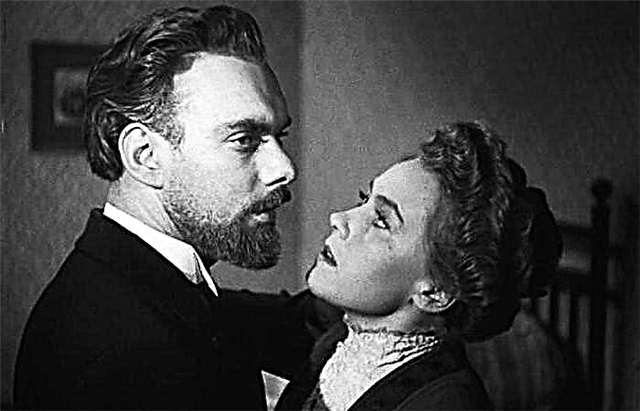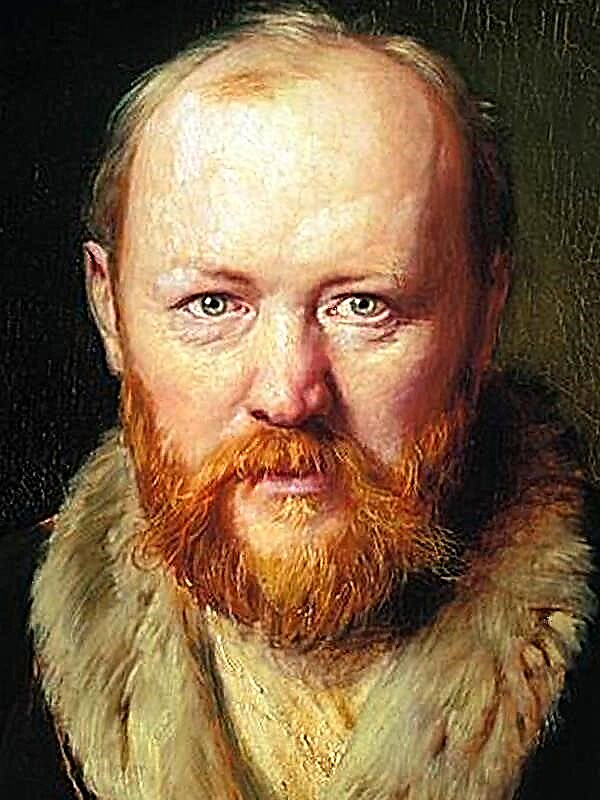1655. Lithuanian lands that make up the Commonwealth. The rich and noble nobleman Billevich, dying, leaves almost all of his estates to an orphan-granddaughter, nineteen-year-old blond and blue-eyed beauty Alexandra (Olenka), only writes Lyubich's estate to his friend’s son, young Orchansky khorunzha, Andrzej Kmitsitsa, desperate foolish and desperate having gathered a gang of thugs, he has been fighting near Smolensk for four years with the enemies of the Commonwealth. According to the will of the grandfather, Olenka must either marry Kmitsitsa or go to the monastery. And here the gray-eyed gray-eyed Andrzej arrives in Vodokty - the estate of Alexandra. The beauty of the bride shakes Kmitsitsa, and his custom is “to boldly go to the woman and the fire”. The girl is slightly lost from such an onslaught, but also falls in love with a dashing cavalier.
The wild gang of Kmitsitsa arranges such fights in the district that the furious local gentry Butryma kill the Buyans in a fight. Enraged Kmitsits, taking revenge for his dissolute friends, burns the village of offenders - Volmontovichi. But all the neighbors in the will of old Billevich are the guardians of Olenka! Shocked by the atrocities of the groom, the girl first hides him from an angry gentry, and then expels him - forever! Soon, maddened by love, Andrzej abducts the beauty. The gentry rushes in pursuit, and the little knight Michal Volodyevsky (he is recovering from these old wounds in these parts) calls Kmitsitsa for a duel. The defeated Andrzej soon recovers and becomes a friend of Mr. Michal. Having heeded his exhortations, Kmitsits decides to exploit the deeds that he will perform in the name of his homeland, to earn the forgiveness of the gentry and Olenka. Having gathered troops, Kmitsits and Volodyevsky rush to Keidany, to the Vilnius governor, Prince Janusz Radziwill: the Polish-Lithuanian Commonwealth attacked. The Swedish flood begins.
Eager to fight the enemy, who had already seized all the great Polish lands, Jan Skrzetuski, with his one-eyed joker Zagloba, who lived alone with Jan on the estate and took care of the children of his “daughter”, went to Prince Radziwill. In the princely palace, Skshetusky with Zagloba happily meet with old friend Pan Michal and get acquainted with Kmitsits, who is now in great mercy with Radziwill. The young man on the cross swore allegiance to him, for he was convinced that the prince was only concerned about the good of his homeland. In fact, Radziwill dreams of a Polish crown, and he needs the support of a noble nobleman. He needs Kmitsits!
At the feast, Janusz Radziwill unexpectedly declares that he has made a union with the Swedish king. "Judas!" Yells Zagloba. Outraged colonels throw their maces at the prince's feet, and he orders to throw Volodyevsky, Skshetusky, Zagloba and other rebellious officers into prison. Kmitsits believes the prince as his own father, and suppresses the rebellion of soldiers trying to free their commanders. Volodyevsky, gritting his teeth, watches this from the prison window. And Olenka, who also arrived at the prince’s castle, recoils in horror from Andrzej, considering him a traitor, and leaves the Caydans in anger.
With pleas and threats, the Knizits forces the prince to cancel the order to shoot Volodyevsky, Skshetusky and Zagloba. They are taken to a remote fortress. On the way, Zagloba manages to escape on a convoy horse and return with soldiers from the Volodyevsky detachment, who free the remaining prisoners. The gentry go into the woods and smash the enemy wherever they can.
Radziwill is furiously hunting for Volodyevsky and Zagloba. Kmitsits, still considering the prince to be the savior of his homeland, serves him faithfully. Trembling, the young man goes to Olenka - and falls into the hands of Volodyevsky. Pan Michal orders the executioner to be shot. Kmitsits proudly and calmly goes to death. But at the last moment Zagloba stops the execution: he found a letter from Kmitsitsa in which Radziwill reproaches the young man for having pardoned the rebels at his request. Friends understand that Kmitsits is a noble man, but mistaken. And he, returning to the Kaydany, begs the prince to send him into business: the suffering young man wants to go away from Olenka despising him. Radziwill, already quite tired of the impudent and rebellious "servant", sends him with letters to his cousin, Bohuslav Radziwill.
With pain and bitterness, having said goodbye to his beloved forever, Kmitsits soon arrives at the red-faced, whitewashed, lace-clad Bohuslav - thirty-five-year-old handsome man, a brave man, a duelist and smoothie, known throughout Europe. Considering Kmitsitsa a man of the same cut as himself, Bohuslav mockingly explains to the young man: the Radziwills do not care about the Commonwealth, they are only interested in power and wealth. And Kmitsits also learns that Janusz Radziwill ordered his people to drink and cut Volodyevsky’s detachment. From the eyes of the shocked Andrzej finally a veil falls, and he boldly abducts Prince Boguslav in order to take him to the Polish king. But the brave Boguslav, grabbing a pistol from Kmitsits’s belt, shoots the young man in the face and is carried away like a whirlwind on his horse.
The faithful captain of the Magpie takes Kmitsitsa, stunned by the shot, whose cheek is spread with a bullet, into the hut lost among the swamps. Waking up, Andrzej realizes that now everyone considers him the worst enemy - both the Radziwills, and the defenders of the Commonwealth, and the Swedes, and Cossacks ... Kmitsits is eager to take revenge on the Radziwills, but the inner voice says to him: “Serve your fatherland!”
In the forest hut, Kmitsits meets his old soldiers of Kemlich - their father and twin sons, the giants Kosmu and Damian, incredibly strong, brave, greedy and cruel. They are afraid of only one Kmitsitsa ... And he writes a letter to Volodyevsky with blood, warning about the princes' machinations. Having received this letter, pan Michal and his friends understand: Kmitsits again saved them all. And they take their banner to the Vitebsk governor Sapieha, the valiant and fair husband, under whose banner the army of defenders of the fatherland is gathering.
And Boguslav, having come to Janusz Radzivil, talks about the treason of Kmitsitsa. Seeing the same Olenka, which Janusz took hostage, Boguslav captivated by her beauty and begins to desperately seduce the girl. And so that she would not recall her fiancé anymore, Boguslav declares that Kmitsits decided to abduct the Polish king and give him to the Swedes. Unhappy Olenka is shocked by the vileness of the man whom she loved.
And Andrzej, disguised as a poor gentry and now called Babinic, travels with his people through all occupied and devastated Poland to Sweden to King Jan Casimir - to atone for his sins with blood. The sufferings of a scolded homeland, ruined by strife and self-will of the nobility, tear the young man's heart. “This Swedish flood is the punishment of the Lord!” - proclaims the old man Lushchevsky, whose estate Kmitsits saved from the robbers. “We must go to Czestochowa, to the holy monastery!” And the great sinner Kmitsits goes to Czestochowa, to the Yasnogorsky monastery.
In a roadside zucchini, Kmitsits accidentally hears Czech Vzheshchovic, who is in the service of the enemy, declares that the Swedes will soon occupy and loot the Yasnogorsky monastery. Kmitsits hurries to Czestochowa, prostrates himself in front of the miraculous icon - and his heart is filled with joy and hope. He talks about the plans of the Swedes to the rector of the monastery, priest Kordetsky. The Poles will not tolerate the desecration of the shrine, come to their senses and drive out the enemy! “This holy man exclaims.” He absolves Kmicitsa of sins, and happy Andrzej, having reconciled his pride, heroically fights with the enemy besieging the monastery. The traitor Kuklinovsky, who came to the cloister for negotiations, — an impudent, a tyrant, a bandit and a libertine — lures Kmitsitsa to the Swedes and receives a strong crack and a kick in the ass for this. Soon Kmitsits, having made a desperate sortie, detonates the most powerful Swedish gun. This he saves the monastery, but himself, stunned, falls into the hands of the enemy. Kuklinovsky, burning with a thirst for revenge, tortures the captive with fire, but Andrzej is recaptured by Kemlichi. Having finished the traitor, Kmitsits with Kemlichi go to Silesia, to Jan Casimir.
Desperate Swedes with disgrace leave Czestochowa. They finally understood: the priest of Kordetsky rebelled like a prophet in order to awaken the sleeping and "to light a lamp in darkness." And throughout the Commonwealth, the Poles begin to smash the enemy.
Kmitsits, loved by the king - a majestic man with an infinitely kind, tormented face, accompanies Jan Casimir from exile to his homeland. Many do not trust Andrzej, but thanks to his foresight and courage, the small detachment of the king manages to connect with the troops of the crown marshal of Lubomirsky. Seriously wounded Andrzej, who wholeheartedly devoted to the king and chest covered him in the Carpathian gorge, where the Poles came across the Swedes, reveals his real name to Yan Casimir. He understands: Boguslav Radziwill, who wrote to him that a certain Kmitsits vowed to kill the sovereign, outraged Andrzej out of revenge. The king forgives his valiant knight all old sins and promises to intercede for him before Olenka.
The gray-haired, exhausted and humiliated Janusz Radziwill, abandoned by the Swedes and Boguslav, dies in the Tykocin fortress besieged by Volodyevsky. Having taken it, Pan Michal goes with his people to Lviv, where the king finally reconciles the little knight with Kmitsits. And he begs Jan Casimir to give him a small detachment of the Horde, who sent a Crimean khan, going to the Poles to help; Andrzej soon appears with the Tatars to meet the troops of Boguslav.
Having stopped in Zamost for a short while, Andrzej meets Anus Borzobogataya-Krasenskaya, the old love of Pan Michal, a lovely little black-eyed coquette, a pupil of Princess Griseldy, the widow of Jeremiah Vishnevetsky and the sister of the castle's owner, Jan Zamoysky. Captured, like everyone else, Anusey, Zamoysky asks Kmitsitsa to take her to Sapieha, so that he would help the girl to inherit the estates that bequeathed to her the late groom Podipyatka. In fact, Zamoysky planned to abduct Anusa on the road, for he does not dare to harass her in the castle, fearing his strict sister Griselda. But Kmitsits, having easily guessed these ideas, does not give Anus to the people of Zamoysky. Anusya enthusiastically looks at his savior; Andrzej fights with excruciating temptation - but devotion to Olenka defeats all temptations.
Finally, he brings Anus to Sapieha, after which he falls upon Boguslav’s troops, accomplishing great feats with his small detachment. The devil, the devil! - admire Andrzej Litvin, who forgave him all previous sins.
But soon Anusya falls into the hands of Boguslav, to which, however, he treats with great respect, not wanting to quarrel with Princess Griselda. And then the people of Boguslav grab Captain Soroka, and Kmitsits rushes into the camp of the enemy to rescue his faithful servant. Having broken his pride, Andrzej Boguslav falls to his feet, and he, reveling in the humiliation of Kmitsitsa, orders to put Soroka on a stake in front of Andrzej before his eyes. But Kmitsits, having revolted the soldiers, who were also led to look at the execution, returns to Sapieha with a detachment of defectors and saved by Soroka.
Sapieha’s army is smashing Bohuslav. He himself escapes the chase, slashing Kmitsitsa with a sword on the head. Having reclined, Kmitsits hurries with the Horde near Warsaw to help the king. “Private affairs aside! I want to fight for the fatherland! ” - exclaims the young man.
During the assault on Warsaw, in which the Swedes settled, Kmitsitz performs unprecedented exploits, admiring the nobility and the king. From the captured officer, the young golden-haired handsome Scottish man Ketling, Andrzej learns: Boguslav took Olenka to Taurogi, which is four miles from Tilsit. And Kmitsits goes to smash the enemy in Prussia and Lithuania.
And Olenka languishes in Taurog. She cannot forget the traitor Kmitsitsa, although she deeply despises him. The brilliant Bohuslav is trying with all his might to seduce the girl; finally, distraught with passion, he asks Olenka’s hands, deciding to arrange a fictitious wedding. But the girl flatly refuses to become his wife, and when he rushes at her, she jumps into the burning fireplace. Pulling her out of there in a smoldering dress, Boguslav falls in convulsions. Ketling, who is in love with Olenka, who is in the service of Boguslav, defends the girl with all his strength, but refuses to help her escape: the noble Scot believes that this is a betrayal of the oath. Boguslav leaves for the troops, and Anus Borzobogataya is brought to Taurogi. She drives all the officers crazy, and a devoted servant and friend of Boguslav - a handsome, impudent, thug Sakovich, passionately in love, decides to marry a girl. She leads him by the nose and, making friends with Olenka, confesses to her that she gave her heart to the brave Babinic (by this name Kmitsits is known to her).
And the Kmitsitsa detachment, which swept through Prussia in a hurricane, is connected with the Volodyevsky banner. They smash the troops of Boguslav and Andrzej, meeting with the prince on the battlefield, defeats the enemy, but does not dare to finish off: he says that in the event of his death he ordered to kill Olenka.
And the girls, meanwhile, are fleeing the castle to an elderly relative of Olenka, the Russian swordsman Billevich, who assembled a partisan detachment and also fights with the Swedes. In the detachment, Anusya flaunts with a light saber on a silk band, breaking hearts without counting. Soon the partisans enter Lubicz, where everything reminds the suffering Olenka of the villain Kmitsitsa. And Anusya, having heard how everyone around him is praised by the brave Babinic who is heroic in Lithuania, sends him two letters. But one messenger falls into the hands of the Swedes, and the other - to Sakovich, and he rushes to avenge Anus for treason. Billevich’s detachment, having strengthened itself in Volmontovichi, is saved from defeat only by Kmitsits following Sakovich’s trail. Having swept out the bandits, he rushes on, not even knowing that thanks to him the very village that he once burned survived.
After the next battle, Kmitsits looks at his army and proudly thinks that he fell low - but managed to rise! He is eager for Olenka, but the messenger Sapieha orders the young man to act south - to fight with the Hungarian troops. "I will not go!" - Kmitsits shouts in despair, and yet, having said goodbye to his happiness, he turns his horse south.
In the fall of 1657, Olenka, about to leave for the monastery, sees how Kmitsitsa, dying of wounds, is being taken to Lubich. For two weeks the girl prays fervently for her beloved - and soon she meets with recovering Andrzej in the church. It also includes Litvinians who returned from the war, led by Volodyevsky and Zagloba. The priests read out the royal letter brought by Pan Michal, which describes all the deeds of Kmitsitsa-Babinic, and promises him a high place of the head of the Upites. The shocked Olenka kisses Andrzej's hand and jumps out of the church. And soon the whole district rushes to her estate - Kmitsitsa woo! Olenka, sobbing, falls to his knees, he, pale and happy, grabbing her, presses him to his chest. And the smiling Anusya is waiting for Mr. Michal ...
Long and happily lived with Olenka in Kmitsits Vodokty, surrounded by universal respect and love. It was said, however, that he obeyed his whole wife, but pan Andrzej was not ashamed of that.
The fate of the little knight is described in the final book of the trilogy, the novel Pan Wolodyjowski (1887–1888). Having hardly survived the untimely demise of Anusi, pan Michal continued to serve his fatherland. He was captivated by the beautiful Kshesey, but she preferred the noble Scottish Ketling to him, to whom Poland became a second homeland. And only with the brave Basya, who fell in love with Mr. Michal with all his heart, did he finally find his happiness. He died heroically - under the ruins of a fortress that they blew up with Ketling, so as not to give the enemies of the Commonwealth.

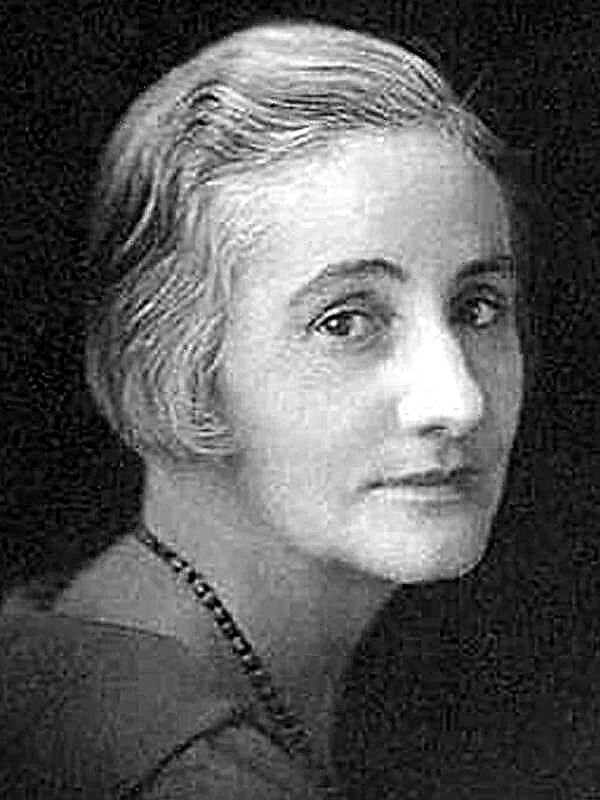
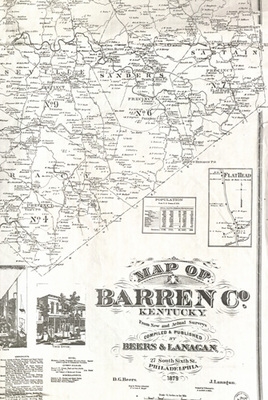
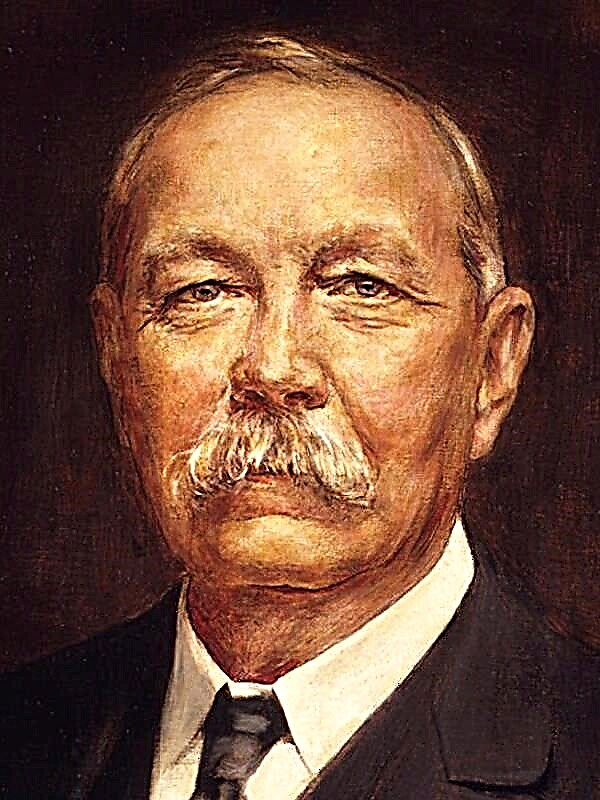


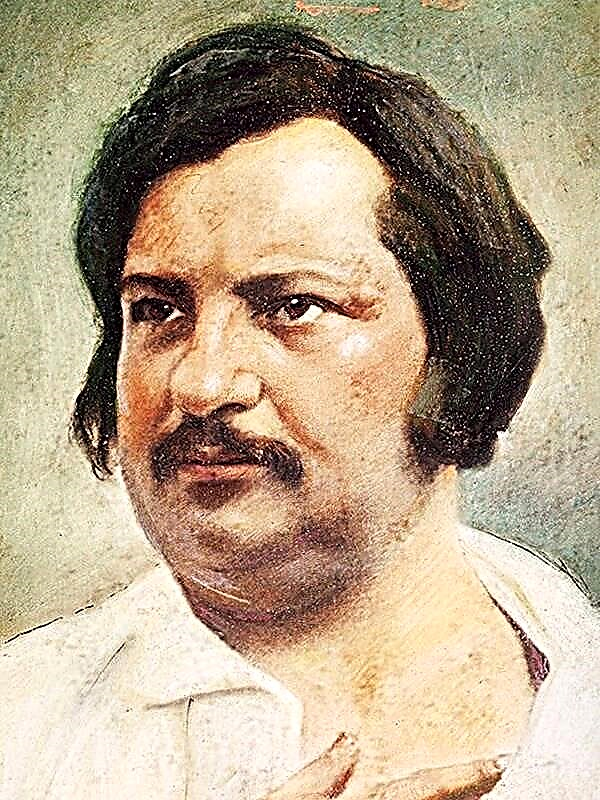

 Buddenbrooks
Buddenbrooks